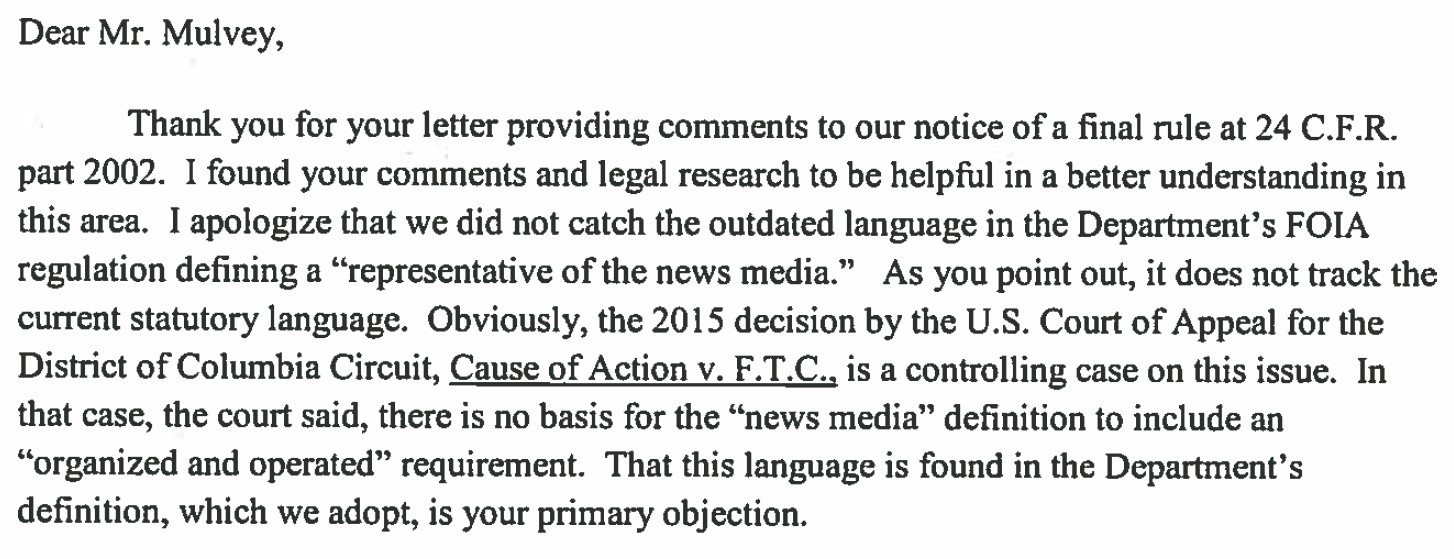Department of Veterans Affairs (VA) acting secretary Peter O’Rourke incorrectly claimed authority over the VA Inspector General (IG) in a letter sent to the IG on June 11 and published by Stars and Stripes on June 20. In the letter, O’Rourke wrote to VA IG Michael Missal:
“You also appear to misunderstand the independent nature of your role and operate as a completely unfettered, autonomous agency. You are reminded that OIG is loosely tethered to VA, and in your specific case as the VA Inspector General, I am your immediate supervisor. You are directed to act accordingly.”
The letter from O’Rourke was in response to IG Missal’s concerns outlined in a June 5 letter to the VA that claimed the agency was withholding information from the IG, including information about whistleblower complaints. By trying to strongarm the IG, not only is O’Rourke blatantly mistaken in his interpretation of federal law, but his threatening language in the letter is deeply troubling. While the relevant law, the Inspector General Act of 1978, does put IGs under “general supervision” of agency heads, it makes clear that they have their own independent authority:
“Establishment IGs [IG Act, § 3(a)]: The Act specifies that each IG ‘shall report to and be under the general supervision of the head of the establishment involved or, to the extent such authority is delegated, the officer next in rank below such head, but shall not report to, or be subject to supervision by, any other officer of such establishment.’ Except under narrow circumstances discussed below, even the head of the establishment may not prevent or prohibit the IG from initiating, carrying out, or completing any audit or investigation, or from issuing any subpoena during the course of any audit or investigation.” (Emphasis added)
The Council of the Inspectors General on Integrity and Efficiency (CIGIE) explains that “[w]hile by law, IG’s are under the general supervision of the agency head or deputy, neither the agency head nor the deputy can prevent or prohibit an IG from conducting an audit or investigation. The VA’s own Functional Organization Manual states that the VA IG is “an independent oversight entity” that “[h]as authority to inquire into all VA programs and activities.”
Simply put, an IG is an independent entity that operates separately from the oversight of any official within the agency it oversees. The independent authority of the IG ensures that investigators can conduct their work without fear of reprisal.
Cause of Action Institute has often written about the issues of having watchdogs without permanent leadership, but an uncooperative agency is a similar, if not greater, problem for accountability and oversight. The VA’s acting secretary should stop claiming authority he does not have and should not try to hinder accountability at a federal agency that desperately needs it.
Ethan Yang is a Research Fellow at Cause of Action Institute.

